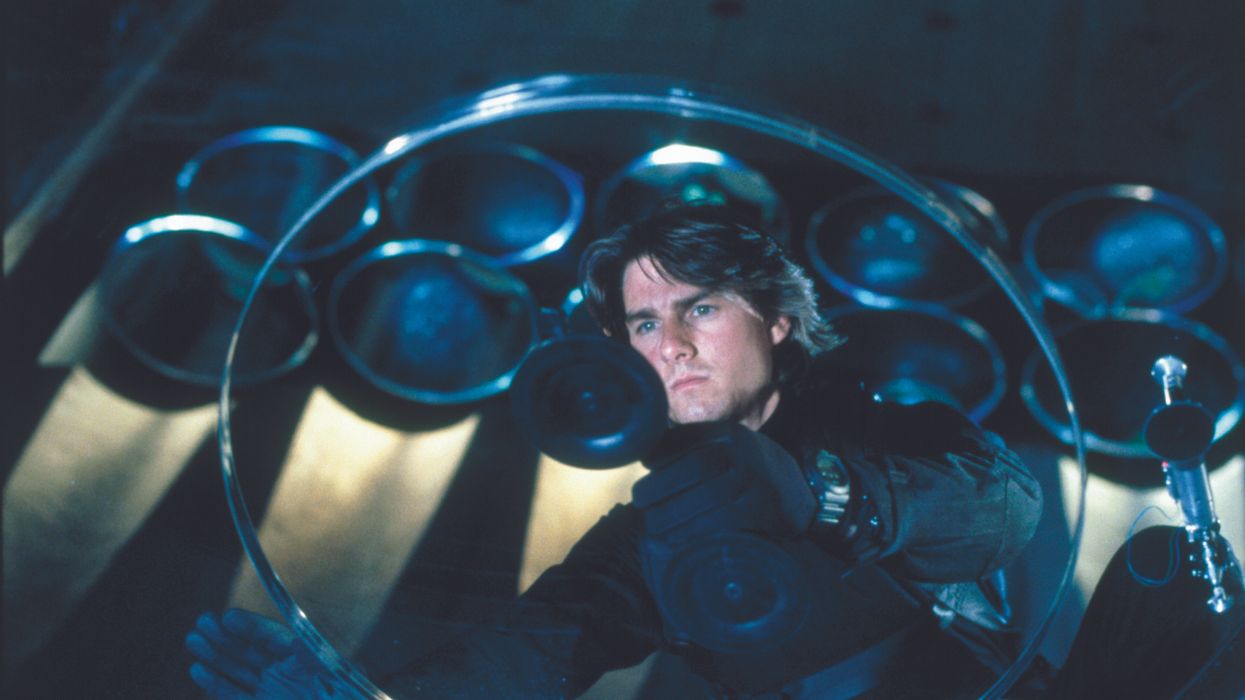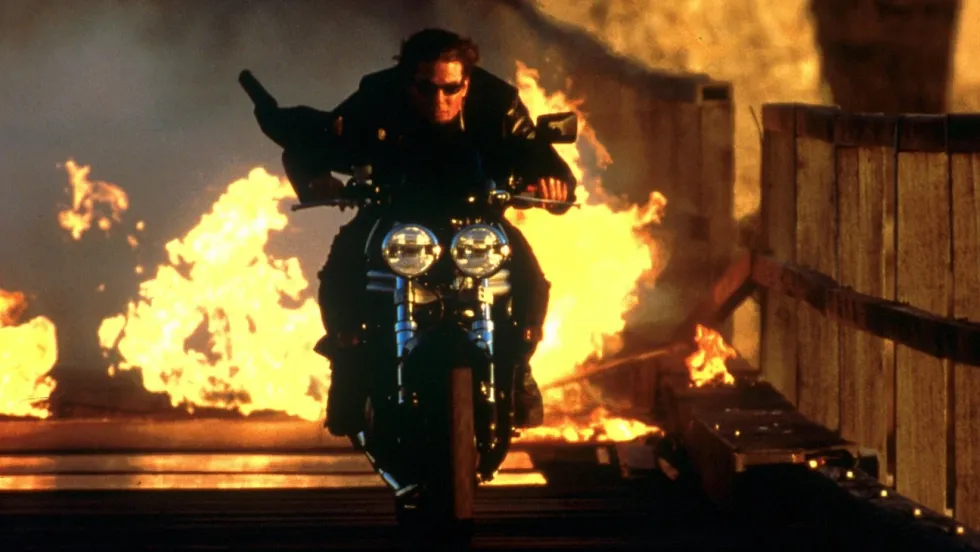Why Oliver Stone's 'Mission: Impossible II' Script Was Impossible to Make
What impossible mission did Oliver Stone have in mind for Ethan Hunt?

'Mission: Impossible II'
Mission: Impossibleis a franchise that runs high on expectations not only from audiences but from the man at the helm of the entire series: Tom Cruise.
Unlike franchises likeFast & Furious orJurassic World, the Mission: Impossible films have stayed relatively the same, providing excellent action scenes, beautiful locations, and melancholy character development that leaves Cruise's Ethan Hunt more and more haunted. This consistency is largely credited to writer/director Christopher McQuarrie, who has written and directed the last four Mission: Impossible films.
However, McQuarrie wasn't always there to lead the way for Hunt and the Impossible Mission Force. Brain de Palma, the American auteur who mentored Wes Anderson, kicked off the franchise with a gaudy, hyper-stylized, and tension-filled film based on the original TV series. Robert Towne, who wrote Roman Polanski's Chinatown, tossed the original series to the side for a new story that drew in old and new audiences to the cinema. It was a hit, and a sequel was immediately ordered.
While John Woo's film is largely forgotten and deemed the weakest entry in the franchise, ScreenRant discovered that Oliver Stone's rejected take on the project was much, much wilder. How wild was it? Let's get into it.
Oliver Stone's Rejected 'Mission: Impossible' Movie

'Mission: Impossible II'
Paramount Pictures
In their Mission: Impossible fan podcastLight The Fuse, host Charles Hood and Drew Taylor go into an in-depth breakdown of an early draft for Stone's planned sequel. Written by David Marconi with revisions by Michael Tolkin, the film saw the return of characters from the first film and an evil supercomputer as the primary villain.
The script, which can only be viewed by appointment at the Ron Moore Collection at the Cinematic Arts Library at the University of Southern California, the early Mission: Impossible II outline was disjointed, leaving readers confused as transitions from each act are jarring and unnatural.
Marconi's script opens with a scene that is familiar to Mission: Impossible audiences: during a prison fight, Ethan escapes to Vietnam while following the trail of the movie's antagonist, who seems to be in league with a supercomputer with an appetite for world domination.
Things get stranger as the events of act two play out. At one point, the IMF headquarters in Rome is destroyed and Ethan fakes his own death at an airport in Denver. However, Ethan is then later captured and kept inside an experimental chamber named the Evolution Room where he begins to hallucinate about an escape plan attempted by Luther, which turns out to be an elaborate ploy for information extraction.
Ethan ends up hallucinating that he is in the Garden of Eden, where he encounters the Child of the Millennium and debates the nature of reality. Ethan ends up defeating the child, who transforms into a man and then a monster, because of a psychological epiphany that ends the simulation.
There is a lot happening in this film that would have been a huge misstep for the narrative established in the first film Yes, Ethan is an insanely impressive secret agent who almost defies the laws of physics to complete his mission, but he is still a man who needs his team. These are films about trust. To throw away that trust in favor of a biblical fight in the mind feels pointless at the end of the day. Would it have been cool to see it? Of course, but that's not what this franchise wanted to be.
If we ever get our hands on the script, it would be cool to see where the script shined the brightest and what parts were the ultimate downfall of Stone's and Marconi's screenplay.
Do you think Oliver Stone's pitch for the second film would have been a success or tanked the blossoming franchise? Let us know in the comments below!












